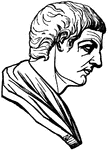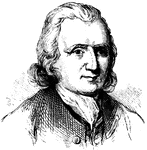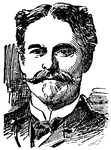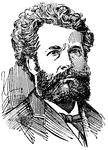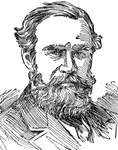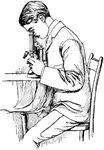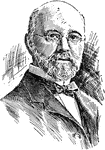Clipart tagged: ‘Scientist’
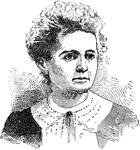
Marie Curie
A French physicist and chemist famous for her work on radioactivity. She was the first person honored…
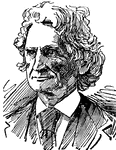
James D. Dana
(1813-1895) American geologist who observed in expeditions to the Pacific and Antarctic and later edited…
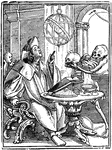
Dance of Death, The Astrologer
The Astrologer, from Hans Holbein's series of engravings, Dance of Death.
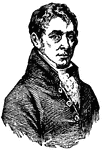
Sir Humphrey Davy
(1778-1829) British chemist who discovered the anesthetic use of laughing gas, discovered many elements…
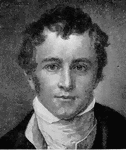
Sir Humphrey Davy
(1778-1829) British chemist and inventor remembered today for his discoveries of several alkali and…
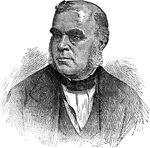
John William Draper
John William Draper (May 5, 1811, - January 4, 1882) was an American (English-born) scientist, philosopher,…
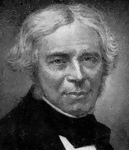
Michael Faraday
(1791-1867) British scientist, chemist, physicist, and philosopher who greatly contributed to the fields…
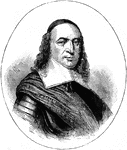
Benjamin Franklin
Benjamin Franklin (January 17, 1706 – April 17, 1790) was one of the Founding Fathers of the United…
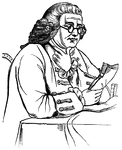
Benjamin Franklin
Benjamin Franklin was one of the Founding Fathers of the United States of America. He was also a noted…
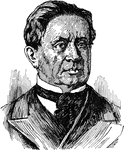
Joseph Henry
Joseph Henry (December 17, 1797 - May 13, 1878) was an American scientist who served as the first Secretary…
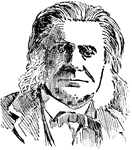
Thomas H. Huxley
(1825-1895) British biologist that had many studies in medicine and marine life. He was a supporter…
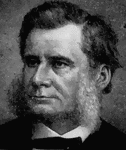
Thomas H. Huxley
{1825-1895) English biologist known as "Darwin's Bulldog" for his advocacy of Charles Darwin's theory…
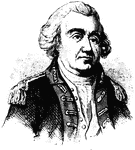
John Lamb
(1768-1835) He was an astrologer who was killed because people believed he had dealings with demons
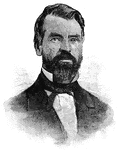
Increase A. Lapham
(1811-1875) American scientist and naturalist. Created a catalogue of plants and shells found in the…
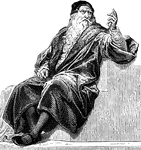
Leonardo Da Vinci
(1452-1519) Famous Italian polymath who was a successful scientist, mathematician, engineer, inventor,…
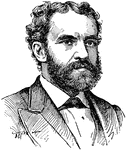
Alfred M. Mayer
Alfred Marshall Mayer was a physicist born in Baltimore, Marylnd in 1836 and died in 1897.

Isaac Newton Discovering Gravity
An illustration of Sir Isaac Newton sitting on the ground being hit by an apple falling out of a tree…
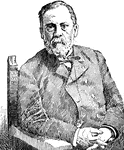
Louis Pasteur
A French chemist who created the first vaccine for rabies and anthrax, as well as supported the germ…
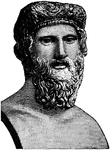
Bust of Plato
Plato was a Classical Greek philosopher, mathematician, writer of philosophical dialogues, and founder…
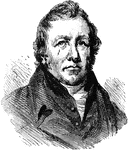
John Playfair
Professor John Playfair FRSE (March 10, 1748 – July 20, 1819) was a Scottish scientist.
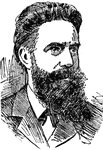
Wilhelm Röntgen
(1845-1923) German scientist she produced and detected electromagnetic radiation in a wavelength range…
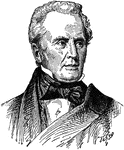
Benjamin Silliman
Benjamin Silliman (8 August 1779 – 24 November 1864) was an American chemist, one of the first American…
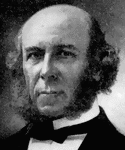
Herbert Spencer
(1820-1903) Spencer was an English philosopher, biologist, sociologist, and prominent classical liberal…
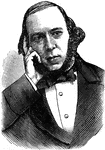
Herbert Spencer
"The famous English evolutionist, Herbert Spencer, was born in Derby in 1820." —The Popular Cyclopedia,…
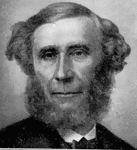
John Tyndall
(1820-1893) A Prominent nineteenth century physicist whose scientific fame arose in the 1850s from his…
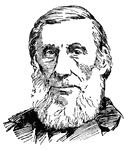
John Tyndall
(1820-1893) A Prominent nineteenth century physicist whose scientific fame arose in the 1850s from his…
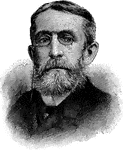
Andrew Dickson White
Andrew Dickson White (November 7, 1832 – November 4, 1918) was a U.S. diplomat, author, and educator,…


